From the constant harping about the supposed "failure" of Apple's iPhone 5c, you'd think the phone is selling poorly. The reality is that middle tier model, while dramatically less popular than Apple's top of the line iPhone 5s, still managed to outsell every Blackberry, every Windows Phone and every Android flagship in the winter quarter, including Samsung's Galaxy S4.
Calibrating failure and hysteria with Apple's iPhone 5c
Apple's fiercest critics spent most of 2013 complaining that the company wasn't "innovative enough," but its latest high-end iPhone, the 64-bit iPhone 5s With Touch ID, managed to outsell every other flagship smartphone on any platform, by far, becoming the world's best selling handset.
In fact, Apple's high-end iPhone 5s has been so remarkably successful, in spite of the supposed cheapening trend in smartphone buyers' tastes, that Apple's critics have been forced to pounce upon the supposed "failure" of the iPhone 5c instead; a phone that sells so "terribly" that it also outsold the ostensibly successful Samsung Galaxy S4 on half of America's top carriers, and pushed every other Android phone out of the top U.S. sales charts entirely, from the first month it went on sale.
The primary data point supporting the "5c Failure" propaganda campaign is that the cheaper model hasn't been able to outsell Apple's top of the line 5s, as if Apple would prefer to sell the 5c and collect at least $100 less per sale.
Note that the war on iPhone 5c focuses entirely upon Apple's smartphone model mix, a topic that has never raised any interest among any Android or Windows Phone smartphone makers, none of whom detail the unit sales of each price tier in the phones they sell. Few smartphone makers even provide an official figure for the overall numbers of units they sell.
Grave concerns about Apple's product mix were raised as a distraction from reality, and continue to grow in their fevered pitch as the reality of Apple's leading market position in premium smartphones becomes more evident, from taking 80 percent of premium phone sales in China to 76 percent of all smartphones in Japan and 45 percent of all smartphones sold in the United States.
Chevys, Cadillacs and lemonade
Proponents of the 5c Failure Meme have even twisted Tim Cook's words to suggest that Apple's incorrect initial expectation that it would sell a larger mix of cheaper models in 2013 really meant that Apple was upset that buyers weren't as interested in its middle tier phone as its high end iPhone 5s.
Imagine General Motors being upset to find that the majority of its customers preferred to pay a 20 percent premium for an option package that included fancier trim, greater horsepower and a lucrative technology/convenience package.
No doubt GM would be ecstatic to discover such unexpectedly favorable market demand from its customers, even if it meant a mid-season retooling to accommodate buyers' desires for more premium vehicles, regardless of their higher price in our hypothetical economy where few other car makers could earn anything on sales of their cheaper, bare bones cars, nor manage to introduce a successful luxury model.
If you prefer lemonade stand analogies to cars, Apple is selling all the premium organic lemonade it can produce at prices more than two times higher, on average, than everyone else can sell any sort of drink.
Note that Apple isn't just asking for more money; consumers are readily paying twice as much to buy iPhones. That's indicative of a failure on the part of Android. Either the entire world has been fooled, or Android is simply not as desirable as its proponents claim. Samsung does appear to be blowing its promotional billions ineffectually, but it's hard to imagine that the majority of the world's most sophisticated consumers are being fooled by one company to pay that much extra, were there no real difference.
Apple subsequently makes more money, by far. It also has far more capital available to expand into a variety of other offerings, were demand for its lemonade to ever decline (and there's no credible signs of this happening so far). If demand were to shift toward orange juice, beer or even cheaper lemonade, the best capitalized lemonade stand would certainly be best positioned to shift its operations to accommodate that change.
The 5c Failure Meme, largely invented by some sloppy reporting from the Wall Street Journal attributed to Lorraine Luk, Eva Dou and Ian Sherr, and subsequently regurgitated by Brad Reed and Chris Ciaccia of BGR in various forms at a regular pace ever since it became clear that Apple's high end iPhone 5s was far more successful, is particularly bewildering in its brass ballsiness because Apple's iPhone 5c was indisputably more successful than the middle tier model Apple sold last year.
Without even citing sales figures anymore, Reed and Ciaccia have taken to calling iPhone 5c a "flop," as if saying something outrageous over and over automatically makes it factual. Unsurprisingly, the site also described iPhone 4S as a failure in late 2011, iPhone 4 as a failure in early 2011 and spoke of iPhone 3GS as a failure before that, if for no other reason that that its writers didn't like the name.
"To be honest," wrote BGR's Zach Epstein back in 2009, "we can't remember ever having seen Apple fail so massively in this department."
The "failure" of iPhone 3GS' branding was ostensibly so incredibly bad that BGR coined it a "megafail," specifically because it wasn't clear enough whether there should be a space between the "G" and the "S." Apple, it seems, can't help but "fail" in various ways as it chows down the majority of the mobile industry's profits building the world's most desirable phones and expanding the world's most important and sustainable ecosystem for apps and accessories. If sportswriting were as disingenuous and misleading as the tech industry's bloggers, it'd be really hard to tell what teams were winning versus who was simply the team favored by a particular observer of the games being played.
Imagine the team winning the Super Bowl or World's Cup being labeled a "failure" by sports commentators who groused about perceived flaws in how the winning team played while detailing the "whisper number" of points that "sports analysts" had expected the team to score, expressing great disappointment in the winning team's inability to score what somebody had guessed might be possible.
If sportswriting were as disingenuous and misleading as the tech industry's bloggers, it'd be really hard to tell what teams were winning versus who was simply the team favored by a particular observer of the games being played.
Perhaps that's the point.
Wait, there's more
Apple's iPhone 5c was actually more successful than every other Android flagship smartphone, redefining what "flop" can possibly mean. Would Microsoft's Zune been a "flop" if it had outsold any model of iPod? Would Microsoft's Surface or HP's Slate PC, Motorola's Xoom, Samsung's Galaxy Tab or Google's Nexus 7 have still been flops if any of them had outsold iPads? Would Blackberry, Windows Phone, HTC's One, Google's Moto X or LG's G2 been flops had any of them outsold Apple's iPhone?
In fact, while the exact iPhone sales ratio is a closely held secret inside Apple, data from multiple sources, compiled by blogger J. M. Manness, indicates that about 12.8 million of the 51 million iPhones Apple sold in the winter quarter were iPhone 5c, while 6.4 million were iPhone 4S and 31.9 million were iPhone 5s. That number aligns with reports that the 5s outsold 5c by a ratio of around 2.5:1 overall.
That means iPhone 5c sold twice as many units as all Blackberry smartphone sales combined (6 million), more than all of Nokia's Windows Phone smartphone sales in the winter quarter (8.2 million), and in fact, all of Microsoft's Windows Phones sold globally in the winter quarter (slightly more than 8.2 million, as Nokia makes 90 percent of the world's Windows Phones).
Even Samsung's flagship Galaxy S4 reportedly sold just 9 million units in the winter quarter. If you do the math, that's less than 12.8 million.
LG's heavily marketed flagship G2 reportedly sold just 2.3 million units in the winter quarter. That indicates that Apple's mid tier iPhone 5c outsold Samsung's Galaxy S4 and LG's G2 put together.
It's certainly possible that the actual number of iPhone 5c units Apple sold could be less than estimated. Even if for argument's sake Apple sold many more higher-end 5s iPhones for every 5c than the app analytics firms are seeing, it would still mean that Apple's single iPhone 5c model was one of the top most successful smartphone designs created and sold in 2013.
As the ratio of 5c's to 5s's that Apple sold goes down, the amount of revenue it made from iPhone sales overall increases. There's no way around the fact that Apple sold more premium smartphones above $400 (the only kind it sells) than anyone else. The only question is to what degree Apple's iPhone 5c helped the company sell more phones to consumers who would otherwise have considered moderately priced Android models or Apple's own lower end iPhone 4S, an outdated model lacking a Lightning connector or support for 4G LTE.
Plastic vs plastic: iPhone 5c upgraded Android buyers, as intended
Kantar reported in December that almost half of iPhone 5c buyers were switching from Android-based competitors, especially those from Korean giants Samsung and LG. That's quite obviously what Apple wanted the iPhone 5c to do.
It's not hard to understand why consumers are picking iPhone 5c over Android phones: it's a demonstrably better product. Despite being clocked higher and having more RAM, Samsung's Galaxy S4 delivers similar performance benchmarks to iPhone 5c.
iPhone 5c is no cheap, low end slouch. It's a mildly enhanced, discounted version of what was the best selling phone throughout the first half of 2013.
Apple's iOS also makes far more efficient use of included storage. A 16GB iPhone 5c leaves 12.6GB available for users, while Samsung's 2013 flagship hogs up so much storage that only 8.56GB is left. And unlike various higher-end Android or Windows Phone models, Apple's iPhone 5c runs all of the apps and games designed for iOS, including many exclusive titles only on iOS (among those are Pages, Numbers, Keynote, iPhoto and iMovie which Apple now throws in for free).
And yet ostensibly legitimate news sources keep repeating the 5c Failure Meme and even grouse about how Apple might be forced to withdraw the model while issuing embarrassed apologies for it not selling better. None of those same people are also reporting that every individual Android flagship failed, nor predicting that Windows Phone will be canceled next year due to a lack of interest for failing to outsell, across the entire platform, Apple's rewarmed iPhone 5 from the prior year.
It's not true to say that Apple's iPhone 5c is the world's best smartphone, or even an incredible value. AppleInsider recommended that potential buyers skip the 5c and pay $100 more for the faster, fancier iPhone 5s instead, a more capable device with significant advantages, including a much better camera, a much faster A7 Application Processor and the convenience of Touch ID. But calling the world's second most popular smartphone behind iPhone 5s a "flop" isn't just a radical opinion, it's a lie.
This is true. 5c outsold a number of flagship Samsung devices in all of 2013 in US as well. http://t.co/xUeARg9sPv
cc @DanielEran
— Ben Bajarin (@BenBajarin) March 22, 2014 Daniel Eran Dilger
Daniel Eran Dilger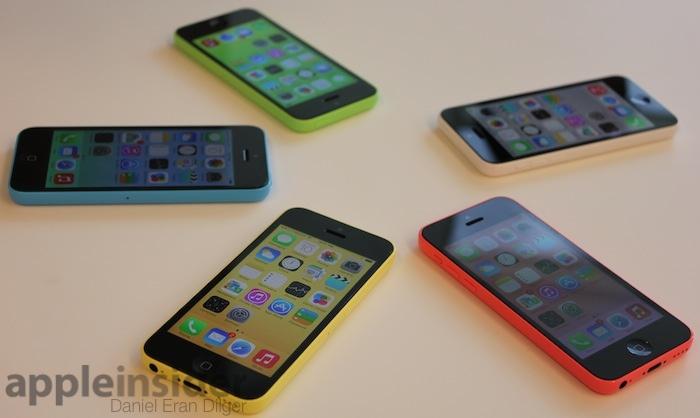
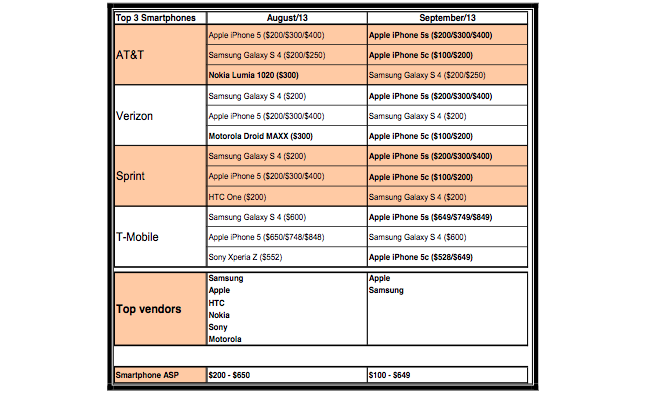
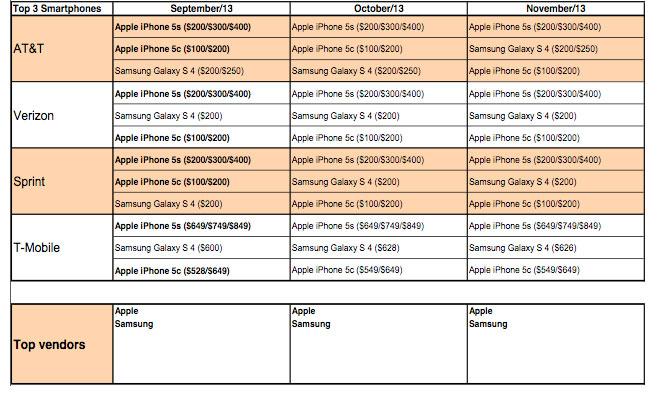


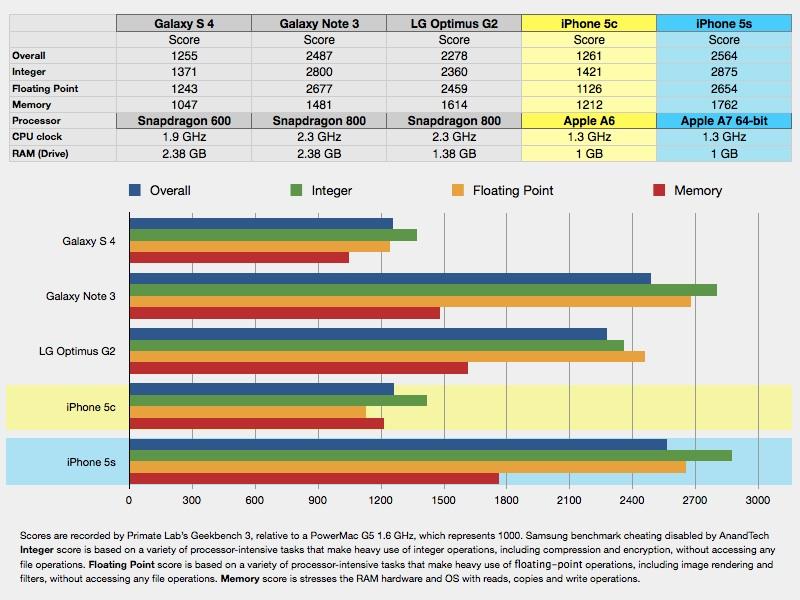
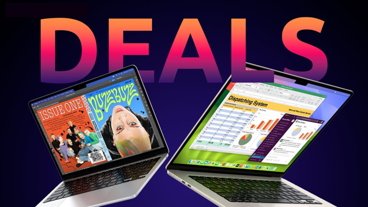
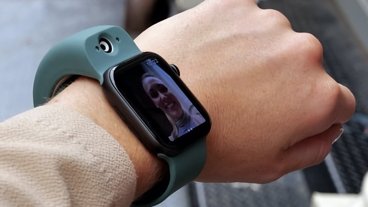
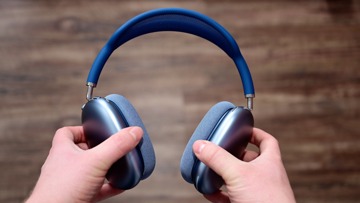
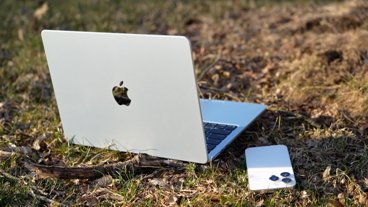
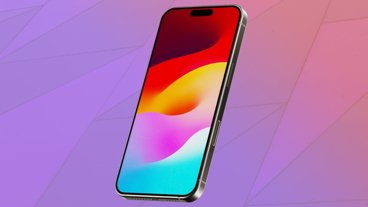


-m.jpg)





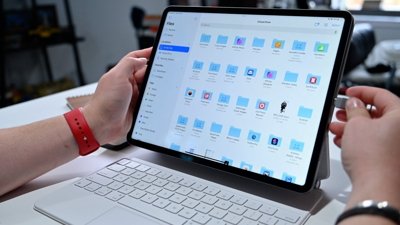
 Andrew Orr
Andrew Orr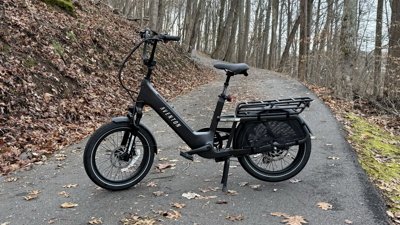
 Wesley Hilliard
Wesley Hilliard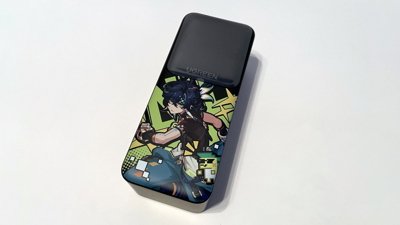
 Brian Patterson
Brian Patterson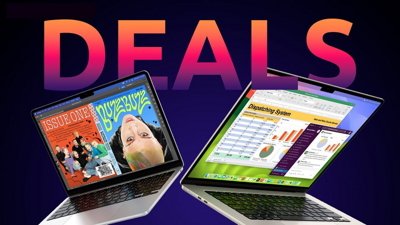
 Christine McKee
Christine McKee
 Andrew O'Hara
Andrew O'Hara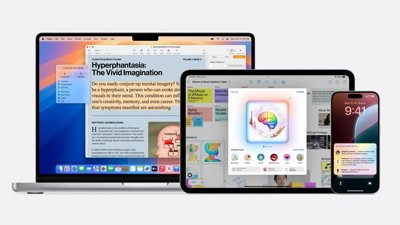
 Malcolm Owen
Malcolm Owen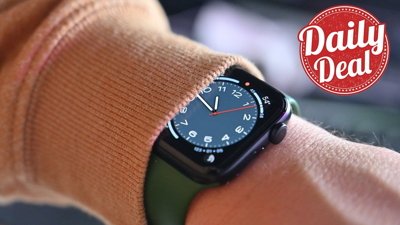
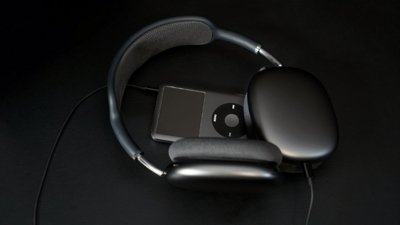
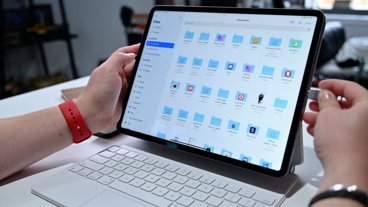
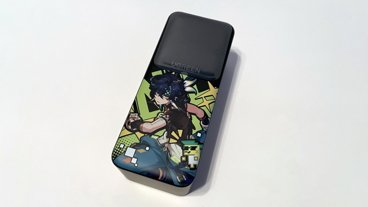






299 Comments
It's a great phone but I see far more of the 4Ss around. The problem is, or rather was, the price. Had it replaced the 4S then it would have been a huge hit. The new price in the UK, which is not really understood here ( it's a 61% drop in the sticker price) will make a big difference to the 5C sales. Off contract prices are a different matter.
well, that is how it works= if you outsell an android phone, let alone all of them, you are clearly doomed to failure.
Indeed! In other breaking news "Tech Press talk a load of crap about Apple!"
And as if they're going to worry about the Flagship outselling the support fleet. Too funny!
In my observation, though, the 5c is selling well to a certain non-geek market of ordinary folks who like the look, the colors, the design, reliability and Apple quality. Adding and promoting an 8 GB model for Asia (especially) makes perfect sense.
I was just thinking about this the other day; about how the 5c has probably outsold every other phone on the market, yet it's considered a "failure," instead of just missing expected sales figures. Cook should be thrilled that Apple released a cheaper phone, and the vast majority of consumers decided "no thanks, we'll spend the extra $100 plus for your higher quality iPhone."
Notwithstanding AI's great efforts above, the fact is: the 5C is a FLOP, aka the IIvx/IIvi of the iPhone world.
Even Apple itself admitted that sales were not "in line" (euphemism for "sorry, we haven't sold that many") - besides, they were absolutely sure that it would sell well in emerging markets and lower strata of industrialized markets; but they did not realize that the 5S was just marginally more expensive, particularly when such phones are sold in instalments or with more expensive plans.
In other words, Cook completely misinterpreted demand trends just like what Apple did with the PowerBook when it didn't produce enough units of the specific notebook model really wanted by the public.
I have never seen anyone with a 5C - and I can assure you that the 5C will go down in history as one of Apple's major market failures ever; it will be quietly discontinued in the coming months (or, more appropriately, "superseded" by revamped non-5C models).